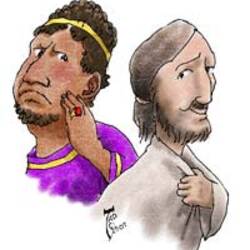Click here if you don’t see subscription options
Read part 1 of this discussion.
Dear Kristi,Im afraid I dont know any more than you do about Sandels personal beliefs. At least I can say that if he professes any religious faith, or worships regularly, it is not something he wears on his sleeve. What we know from his other writings is that he has been a proponent of preserving a place for religious conviction in public debate, while also staunchly defending tolerance and diversity. He does not believe a Rawlsian liberal view is sufficient. For example, in Liberalism and the Limits of Justice, he wrote, Construing all religious convictions as products of choice may miss the role that religion plays in the lives of those for whom the observance of religious duties is a constitutive end, essential to their good and indispensable to their identity.
A few more thoughts: like nearly everyone else who has tried to define the distinction between therapy and enhancement, Sandel appears to have given up short of this elusive goal. Unlike Leon Kass, however, he does not deny that the question can be answered. He does a very good job of clearing the way for an adequate answer by explaining why he considers a whole list of answers inadequate. These include the unfair competition argument against enhancement in sports (wouldnt there still be something wrong with using steroids even if everyone did it?). In the end, however, all Sandel can say is that there appears to be some moral difference between perfecting what is given and distorting our natural endowments. Doesnt that strike you as merely a restatement of the question?
I was also a little disappointed with his treatment of disability. I imagine, given your work, that you were even more so. The only case he addresses is the case of genetically deaf persons who are now using pre-implantation genetic diagnosis to select hearing-impaired embryos so as to rear all their children as deaf members of a deaf family in a deaf community. This means, of course, discarding hearing embryos as unwanted members of another culture. Sandel does not come to a definitive judgment about this practice. But for me, this practice demonstrates how the rights-based approach of many members of the disability movement can go awry. At first, asserting rights seems like a good way to correct injustices, but it ends up looking like one group discriminating against another all over again. Isnt a dignity-based approach better? Wouldnt we be in a better position to defend the disabled against discrimination if we said that what commands respect for any and every human being--disabled or not, embryonic or elderly--is the fact that each has an intrinsic dignity that depends solely upon being members of the human family? Merely stipulating and demanding rights does not seem to be the best approach to defending the disabled against discrimination. Do you agree?
Best wishes,
Dear Kristi,
It is a pleasure to engage in this dialogue with you about Michael Sandels The Case Against Perfection. I think youll agree that he has done a superb job making complex arguments accessible to a general readership. In fact, the book is written so compactly that I worry readers might miss the subtleties. One could read it in a couple of hours, but that would be a mistake. One should digest it slowly.
One of the most striking aspects of the book is its quasi-theological character. Sandel seems to understand that questions of biological enhancement, cloning and the use of stem cells are important not only for their socio-economic implications, but because they raise fundamental questions about what it means to be human. Contemporary Anglo-American philosophy has traditionally looked upon such questions as either meaningless or interesting language games. Or, alternatively, as the sorts of questions one cannot help but engage, but ought to do so with the knowing wink of irony. Sandel realizes that these questions cannot be addressed adequately with arguments about competing interests.
Yet, as a philosophical writer addressing a largely post-religious culture, he seems to feel the need to apologize for discussions that verge on theology or evoke a religious sensibility. What he has discovered is that when the most serious moral questions press upon us, we rediscover the fact that every ethos implies a mythos--that is, that every system of moral thinking must, at least implicitly, be founded upon some story about the nature of being human. He acknowledges that before we deal with serious ethical questions, we need to understand something about our proper stance towards the given world. In the words of William May, we need to have a sense of openness to the unbidden, to understand that our coming into being is a given, not something that we can control. Christian faith has answers for these questions. Sandel struggles to find non-religious answers to questions he thinks are fundamentally religious.
I look forward to your response.
Best wishes,









